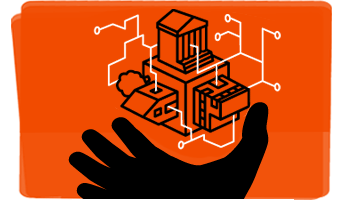What We Do > Research
We investigate how technology can influence and enhance teaching and learning by conducting basic, applied, formative, and summative research using a mix of qualitative and quantitative methodologies.
Here is an example of our current research projects.
As a research partner for the 2020-2025 Ready To Learn (RTL) public educational media initiative, CCT conducts research and evaluation studies to determine whether Ready To Learn’s public media resources are meeting their goals and how they can be improved to reach and serve children, especially children from low-income communities.
Through a five-year grant from the U.S. Department of Education to the Corporation for Public Broadcasting (CPB), PBS, and local PBS stations, the Ready To Learn Initiative supports the development and dissemination of free, evidence-based educational media and digital resources to children ages 3-8, their families, caregivers, and educators. The program also supports the development of resources to support outreach through public television stations to families and programs in communities where resources are limited.
Our researchers work closely with RTL partners and stakeholders to support the development of high-quality media and digital content that builds on prior research targeting children’s educational media and that integrates relevant information from the learning sciences and studies examining intergenerational learning, community engagement, and early learning trajectories.
Research activities across the Initiative’s five years include descriptive studies of context, implementation studies exploring use and engagement of the resources, small-scale efficacy studies, and national randomized controlled-trial studies to estimate effects of the resources on learning. These studies seek to answer a broad set of questions, including:
• How well are the instructional design principles embodied in the resources meeting their intended purpose (e.g., appeal, engagement, learning)? Are the resources effectively promoting the intended learning goals?
• How can resources be improved and optimized to meet their intended purpose and to better address the target learning goals?
• What lessons learned could inform future research and development and the field more broadly?
The project builds on three rounds of prior funding, from 2006 through 2020. The federal RTL program has targeted different content areas over its 25-year existence. During earlier grant cycles, the program emphasized early and emergent literacy, math, and science. This current round of funding includes a focus on critical and computational thinking, everyday literacy, and world-of-work skills and knowledge.
For more information about the Ready To Learn Evaluation work, including past research studies, presentations, and publications, and publicly available instruments, click here.

![]()



